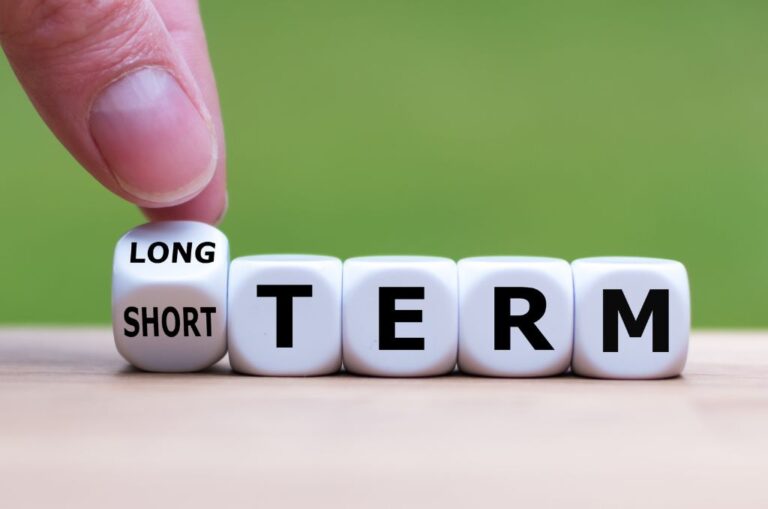Key Takeaways
- Short-term investments are safer investment options.
- Short-term investments get quick returns.
- Short-term investment only gets you simple interest.
- Short-term investments provide slower wealth accumulation.
You can’t always make sure that your money gets you returns for a long time, not when you have some goals that need to be fulfilled on a quicker basis. This is where the need to make short-term investments arises. The need for your money to not only be safe but also give you some returns, even if it is for a short period. However, it is important to know what short-term investments can help you to invest your money smartly, even if it is for a short period. But before that, we must understand what short term investments are.
What Are Short-Term Investments?
Short-term investment means financial assets that can be quickly converted into cash. Short-term investments are for five or fewer years. What are Short-term investments also called? They are referred to as marketable securities or temporary investments because short-term investments are liquidated in a shorter period. You can make short-term investments to meet some goals of the near future, like purchasing a car or motorbike, buying a TV, getting the latest iPhone, saving up for vacation, etc.
There are certain short-term investments that have high quality and high liquidity, like certificates of deposits, high-yield savings accounts, treasury bills, money market accounts, and government bonds. These can be turned into cash in three to twelve months. Financial investments made by a company, known as current assets on the company’s corporate balance sheet, are also denoted as short-term investments. These are to turn into cash within a year or so.
Certain features are unique to short-term investments: there are no fixed maturity dates, nor are there any lock-in periods for late or early withdrawals. Further short-term investments come with higher rates of return when put against a savings account. You can have your investments converted into cash in the time of just three years.
Long-Term v/s Short-Term Investments
What are short-term investments and long-term investments? Long term investments are bought with the intention to be kept for long periods which are more than five years. Whereas short term investments usually see their end or conversion to cash within three years.
You have to have more tolerance levels for risk or volatility if you want to make a long-term investment because of the fluctuations in value that happen over time. Generally these fluctuations act in the favor of the investor as the growth would be steady but profitable.
Whereas short-term investments take you to prioritize liquidity and quick returns, which also endure market fluctuations.
Further, before you start investing, it is important to know that high returns come with higher risks, and lower risks get you lower returns. The risk is about you losing the amount of money that you decide to invest in that particular asset.
Short-term investment usually comes with lower risk when put against long-term investment. Theoretically speaking, long-term investments are more prone to fluctuations, and the returns from them are also undetermined since it is done for a long period. Whereas because of the short period of short-term investment, the market fluctuations do not affect them quickly, and hence, they have lower risk.
Advantages Of Short-Term Investment

There are a few benefits that you will avail if you choose to make short-term investments. However, it is important to make sure that these benefits do not fog your judgment while making a decision as important as investing your hard-earned money.
- Short-term investments are safer investment options. This is because, as mentioned, they come with lower investment risks and, hence, are less prone to market fluctuations.
- Even when short-term investments are low risk, they still give you higher returns as compared to daily transaction accounts. If you make a short-term investment in a high-yield savings account, you can get a high bonus interest rate.
- Further, short-term investments not only get you high returns, but they can also get quick returns. This is because they focus on the immediate modifications of the asset values.
- You can convert your short-term investment into liquid, which is essentially cash, very easily. This is because short-term investments tend to mature faster. The shorter lock-in periods could also be credited for the easy liquid capacity of the short-term investments.
- Since short term investments don’t ask for a long period of commitment, there is the flexibility that they come with in terms of adjusting investing decisions. These decisions could change when there are fluctuations in the market or investor’s financial needs also change.
- The most important aspect of any investment is capital growth. This is what happens when you make short-term investments. You can save capital and earn profits from competitive interest rates. Furthermore, you can get your entire invested principal amount along with interest just after a few years or months of investing.


Disadvantages Of Short-Term Investment
While short-term investments offer benefits such as quick liquidity and potentially higher returns compared to savings accounts, it’s crucial not to let these advantages overshadow the potential drawbacks. Making informed decisions is vital when investing your hard-earned money.
- Because of high transaction volume as well as brokerage commission fees, short-term investments are often accompanied by high costs. Further taxes on short-term gains, along with inflation, also reduce the returns from short-term investments.
- Short-term investments might stay behind in providing wealth accumulation that can come through compound growth.
- Further, if your short-term investment is not in a high-yield savings account, there is a chance that the money gets locked in for the entire investment period. Thus, you would have to wait if you need money in an emergency since the short term might become liquid only when the investment reaches its maturity level.
- To be able to invest profitably in a short-term investment, research, active management, and constant monitoring are some of the requirements.
- There is a chance that you could face penalties if or when you decide to take out your money earlier than the maturity date.
- Short-term investment only gets you simple interest rather than compounding interest. Thus, you might not get much of an interest on your principal amount.
What Are Short-Term Investment Options?
When it comes to options where one can make short-term investments, the options must be the ones that provide good returns and provide the opportunity to gain more interest on the principal investment amount. Here are some of the short investment options.

Certificate Of Deposit (CD)
Earning: You will earn a regular interest on your CDs which is credited to you on the maturity of your CD. This earning will be a sum of your principal amount and the earned amount.
These are also known as CDs, which usually take only three months to mature when looking for short-term investment. However, they can be stretched up to seven years. These are some of the safest short-term investment options. The longer you keep CDs, the more interest you can earn. Make sure the term of maturity of your CD is the time you can afford to keep the money in investment because if you want to take the money out before maturity, you will face penalties from the bank.
Treasury

Earning: You will earn comparatively lower yields on your short-term investments.
They have three different types – T bills, T bonds and T notes. They are one of the safest short-term investing options. T bills form short-term investments that can mature within a year. You must be aware and sure about the kind of bond you want to purchase since the rewards and risks are different in each bond.
High-Yield Savings Accounts

Earning: If you opt for online banks with this account, you can earn more than you could with national and brick-and-mortar banks.
You can hold your cash in a checking account and get interest for the same. The interest is generally higher than the normal savings account. If you wish to get your investment into cash as and when you are investing via online banks you could transfer the money to your regular account or even through an ATM. If you are very skeptical that your invested money won’t get back to you, this account is for you. You could also get back your invested money in a short period.
Cash Management Accounts
Earning: You can get around 2% to 5% interest rate on your principal investment.
This type of account helps you to invest in many different short-term investments, and it can take the role of an omnibus account. Some of the cash management accounts provide services like mobile check deposits, bill payments, check writing, money transfers, and others. You can access your money quicker than in some of the short term investments and thus is quite flexible.
Money Market Accounts
Earning: They can earn you a little more interest than a regular savings account.
This is also a bank deposit but they require you to put in more minimum amount than the other accounts. Via these accounts you could access your money easily and hustle free.
You can liquidate your investment even on a short period notice. To be risk-protected, you must make sure to find a money market account that is FDIC-insured. This will insure your account from losing money with the condition of coverage up to $250,000/ depositor at each bank.
Money Market Mutual Funds

Earning: You can earn through the interest on your investment, and that happens without much change in the principal amount.
These are different from money market accounts. These mutual funds invest in municipal and corporate debt, Treasurys, and bank debt securities for you. You will have to pay an expense ratio to the fund company from the investments that they are managing for you. This will let you access the cash even while simultaneously making money on the same.
Bonds

Earning: You can get interest on your investments through bonds every month.
There are different types of bonds. One of them is corporate bonds, which are related to the major corporations. Corporations take up the funds from the people in the form of bonds and pay interest on the same. They are considered to be a safe investment. The other kind of bond is the government bond. Just like corporate governments also borrow funds and then pay interest for the same. Government bonds are considered safer than corporate bonds. Via these kinds of bonds, you can have a diversified portfolio at the same time, not analyze individual bonds.
What Are Short-Term Investments Strategies?
If you are beginning to invest, it is necessary to be aware of the strategies that you might need to follow in order to make sure that you are investing the correct way. Here, we have mentioned a few short-term investment strategies that could help as and when you are just starting.
You must make sure that the trade that you have decided to invest in is the right path for you. You must look at market trends carefully to know where negative trends in the market will make it harder to invest and the positive trends where investing would be beneficial.
You should control the risk over your investments by diversifying your portfolio. This will also help you to maximize your returns. But to make your portfolio diverse you must invest in mutually exclusive assets. The assets thus have different risk aversions and different returns.
There is a strategy that experienced day traders usually apply; it is called exhausted selling. If there comes a period of recession or other external threats, the aftermath of it calls for exhausted selling. As an investor, you should buy and try to earn a profit right after because exhausted selling does not bring out the real price of assets but rather the distressed price which could be less than the original market price.
Tips For Making Short-Term Investments
As you take your step into the big jungle of short-term investment, it might seem difficult to cover the track, but if you start with appropriate research, click on the time frame requirement depending on the goals you wish to achieve along with being aware of your risk tolerance, it will be a cake walk.
- You must be aware of the expectations or goals that you want to fulfill with your short-term investment. This is necessary because short-term investments come with lower return potential as compared to long-term investments.
- The prime goal of a short-term investor is to have the money when they need it. Thus, it would help if you focused on safer options for short-term investment rather than the ones with higher interests. Thus ensuring that your money gets in handy when needed.
- The type of short term investment that you choose will depend majorly on your needs and requirements. A CD is getting you higher returns, but you might need the money before the CD matures/ there by going for an investment option that is more apt for your goals.
- You must take into account the risks that each of the short-term investments comes with. Investments with the bank are FDIC-backed. This would mean that your principal investment amount will stay for the time you stay within the limits of FDIC. But some of the market assets like corporate bonds could be prone to market fluctuation and hence not so risk free.
- If you are well aware of your short-term financial goals, it is great. But if you are not, you must make sure to have a fixed goal before you make short-term investments. Once your goal is decided, you could sink your investments into the period you would want your short-term goal to be fulfilled.
Suppose your short-term goal is to attend a Taylor Swift concert that is coming up in the next 8 months. You can invest your money in an asset like Credit or Deposits that will mature by then and give you your much-needed money.
- You can always take help from a professional financial advisor who could tailor design a strategy just for your short term goals. Further, it is crucial to check out the Product Disclosure Statement (PDS) before you let out any money. Any company that gives you its financial assets will provide you with a PDS. This involves all the information relating to the assets’s features, benefits, risks, commissions, fees, and complaint filing.
- You can also get help from robo advisors from Empower. However, it is suggested to start using Empower to help in your investment journey after you have gained some experience in the field.
How To Choose The Best Short-Term Investment?
In order to make sure that the decision to put your hard-earned money in a short-term investment is the right one, you must check for the following features to know if the particular investment is suitable for you or not.
1. Liquidity
It is necessary to look for a short-term investment that provides high liquidity. Thus, if an investment provides you with more frequent chances of converting your investment into cash, that could be a perfect fit for you. This is because when deliberating on meeting a financial goal in one to two years, growth becomes less relevant than liquidity.
2. Stability
It is necessary to look for a short-term investment that provides high stability. Thus, if an investment provides you with more frequent chances of staying away from market fluctuations, that could be a perfect fit for you. This is because when deliberating on meeting a financial goal in one to two years, stability ensures that you get the money you aim to use.
3. Transaction Cost
To make sure that you are choosing the right short-term investment, it is important that you focus on the transaction cost of the investment. A good and profitable short-term investment would not ask for a high transaction cost, which is the money used to either get into the investment or out of the investment.
4. Risk Aversion
Short-term investments should make you avoid high-risk investments. Plus there is a risk of you getting into a fixed-term investment while some other higher returns providing investments go unnoticed for you. Thus, make sure to research before investing.
What Are Short-Term Investment Mistakes Investors Should Avoid?

There are a few mistakes that can be committed while investing for the first or a thousandth time. Hence, it is critical to not only be aware of them but also to avoid them. But what are these mistakes?
1. Planning
As a first-time investor, you might end up investing without actually going over the plan for investing. As mentioned, you must research and decide on your short-term investment goal. This would help in formulating an investment plan which would make investing not only easy but more worthy.
2. Understanding
It is important to avoid companies whose businesses either don’t appeal to you, or you are not able to grasp their deal. Whichever bonds you decide to invest in, make sure you understand them.
3. Forgetting
You may forget about a bond that you have bought if you have invested in more than one asset. But don’t let that happen. You should keep track of all your investments and make sure they are working towards helping you achieve your short-term goals.
4. Waiting
Even if you are not going for long-term investments, it is still necessary that you learn the art of patience. Thus, it would help if you were more realistic when deciding upon the timeline of your portfolio, its growth, and the returns it is supposed to provide.
Conclusion
As alien as investing might seem to you as a beginner, it is necessary to know that it is just as profitable. It would help if you planned out before you start investing, and diversifying your portfolio is another crucial step to ensure that your short-term investment is getting you your desired returns.
Find this helpful? Share it on Pinterest, LinkedIn and Facebook for your dear ones. Also, subscribe to our FREE newsletter and get the personal finance tips, tricks, advice, and more.
Did you take our Reader Survey? If not, it only takes 1 minute and you can take our survey here.








